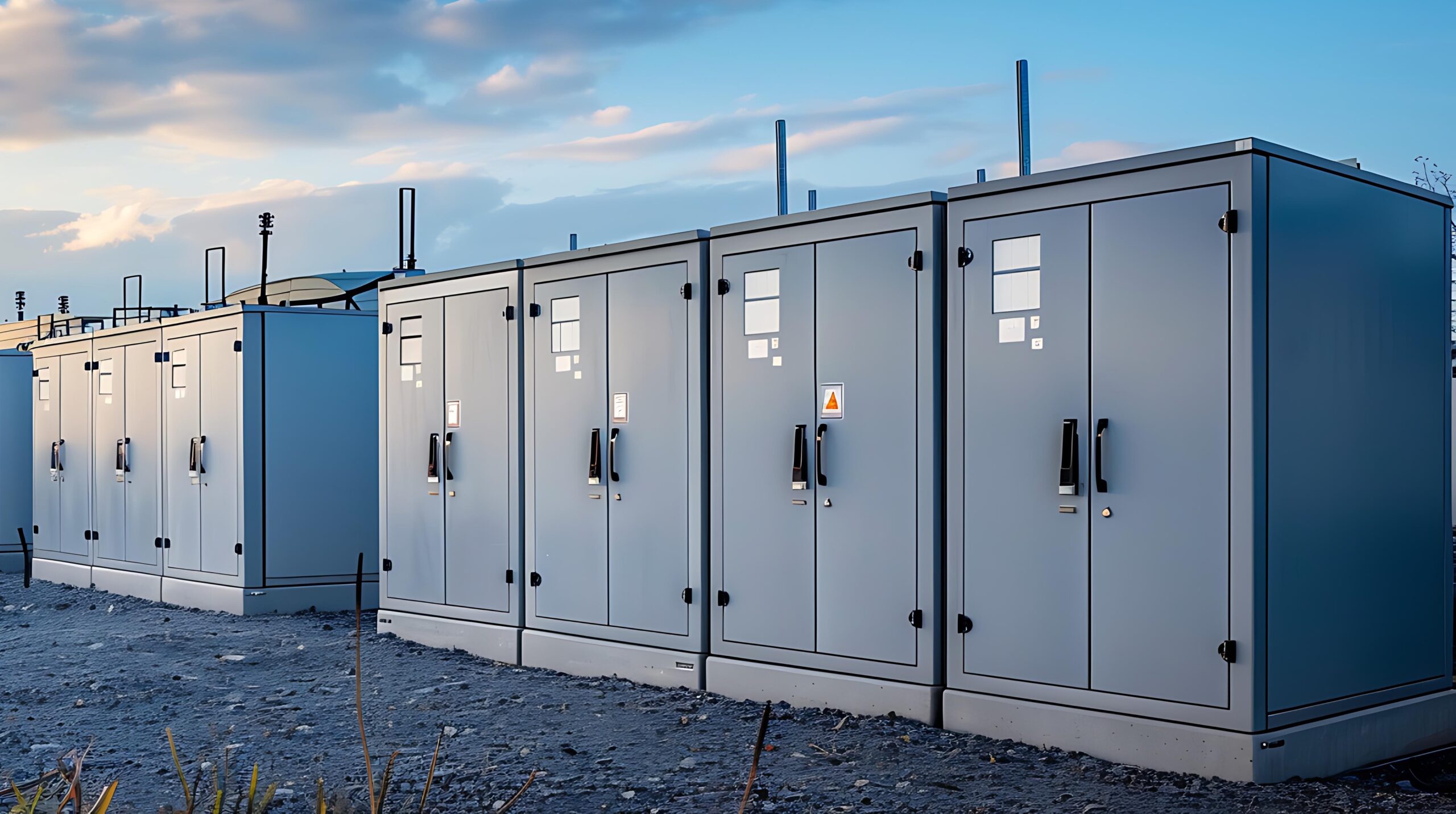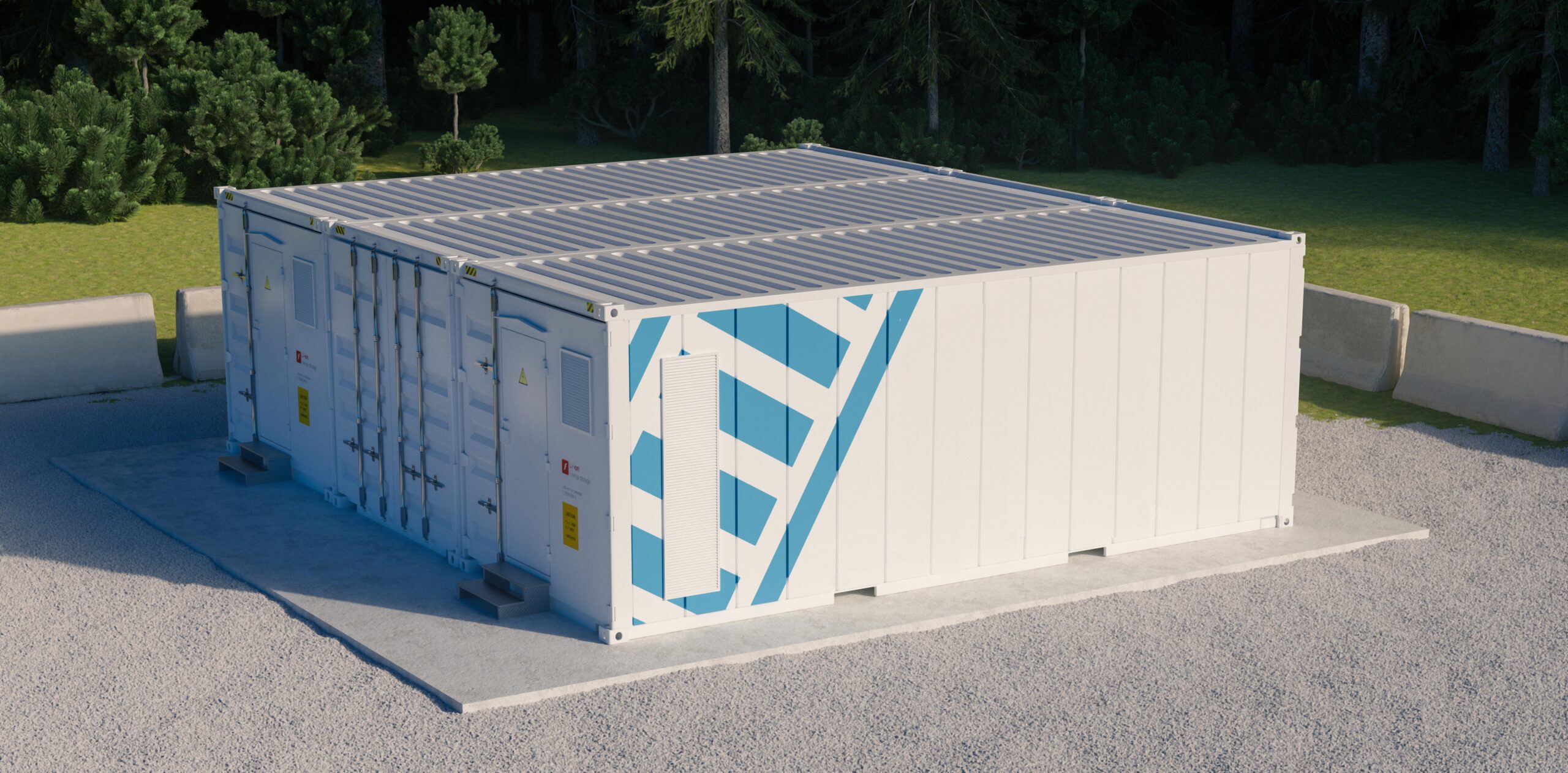
Battery Energy Storage SYSTEM (BESS)
What is a BESS?
A Battery Energy Storage System (BESS) is an energy storage system that uses a group of batteries to store electrical energy from the grid and renewable projects such as solar and wind farms.
It’s an electrochemical energy storage device, much like the battery found in your phone, just on a much larger scale.
A critical challenge of the energy transition is addressing the intermittency of renewable energy generation. As we reduce our reliance on thermal baseload generation, how do we power our homes and businesses when the wind stops blowing or the sun isn’t shining? Renewable energy can be efficiently stored in utility-scale BESS allowing power to be released to the grid at times of demand.
The BESS would also enable excess electricity generated during the day to be used during the evening or early morning, reducing the reliance on fossil fuels and lowering greenhouse gas emissions from the electricity sector.
Why BESS?
Battery Energy Storage Systems (BESS) are a becoming a fundamental part of the grids and energy infrastructure globally.
The stored energy can be drawn upon when needed to meet various demands for power, as well as providing other advantages, such as improving grid stability.
BESS systems allow for increased penetration of intermittent renewable generation, which complements the global transition to zero carbon generation.
They are crucial to the increased adoption of de-centralised power infrastructure models and are playing an increasingly important role in the green energy transition in New Zealand and abroad.
The BESS’s role in reducing the need for non-renewable energy sources will be a key contributor to lowering emissions in support of New Zealand’s Net Zero emissions target by 2050.
Daybreak BESS Projects

Daybreak BESS-1
10 MWh BESS plus 4MW PV, located near Franklin

Daybreak BESS-2
10 MWh BESS plus 3MW PV. located near Paeroa
常见问题
1. WHAT ARE BENEFITS THAT BESS PROVIDE?
The BESS will support the charging of electric vehicles, maximising the benefits of renewable energy to provide a continuous and stable power supply, and providing back up during grid emergencies to enhance grid stability and resilience.
2. HOW IS SAFETY UPHELD?
Safety is fundamental to the development and design of Battery Energy Storage Systems. Each energy storage unit has multiple layers of prevention, protection and mitigation systems that minimise the risk of overcharge, overheating or mechanical damage that could result in an incident such as fire.
Furthermore, there are multiple international regulations for industry that ensure Battery Energy Storage Systems are designed and operated in a safe and secure manner. A global approach to hazard management in the development of Battery Energy Storage projects has made the lithium-ion battery one of the safest types of Battery Energy Storage System.
3. WILL THE BESS HAVE ANY HEALTH IMPACTS?
A BESS uses proven and safe technology to provide reliable, clean, affordable electricity. To date, independent technical experts have not identified any known direct health impacts associated with BESS facilities.
Our BESS must meet stringent Health, Safety and Environmental (HSE) standards set out by the NZ Government and Environment Protection Authorities, to ensure they are safe and reliable. Like a regular battery used to power electronic devices, our BESS will work in a similar way, but on a much larger scale, using extra components to make them safe and prevent faults.
4. ARE THERE ELECTROMAGNETIC RADIATION RISKS?
Technical and engineering experts, including the Australian Radiation Protection and Nuclear Safety Agency (ARPANSA), have found no known or documented electromagnetic radiation (EMF) impacts associated with big batteries.
We will use lithium iron phosphate for our BESS. Engineers have independently assessed and certified that the chemical process in these batteries do not produce electromagnetic radiation during operation. Other components associated with energy generation (such as transmission lines) emit EMF at safe levels.
5. HOW WILL A FIRE HAZARD BE MANAGED?
Ensuring our BESS operates safely and can quickly shut down to mitigate fire hazards it will have a Supervisory Control and Data Acquisition (SCADA) and a Battery Management System (BMS). Together, these will monitor for faults in real-time, including smoke and system temperatures.
We will comply with guidelines, standards, and conditions to operate in accordance with the applicable legislations as set out by Government and regulating bodies.
